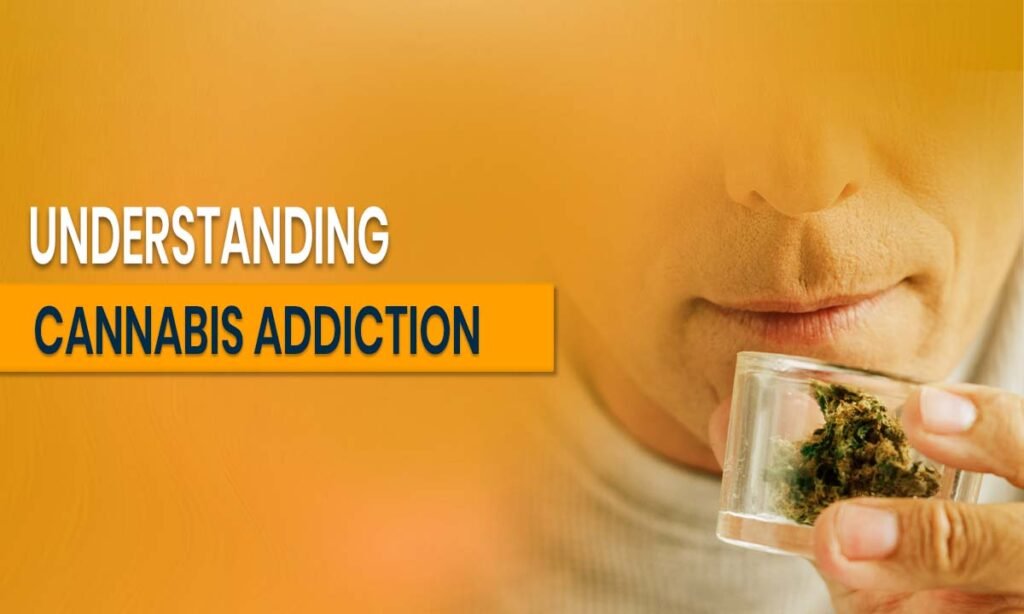
Cannabis, commonly known as marijuana, weed, or pot, is a psychoactive substance that originates primarily from Central and South Asia. While historically used as a traditional medicine, it has increasingly become a recreational substance, with many individuals seeking its euphoric effects. As the movement to legalize cannabis continues to grow worldwide, so does the potential for dependency and addiction, which can lead to significant psychological and physical distress.
While cannabis use may seem harmless to some, prolonged use can significantly disrupt brain function and contribute to addiction, often referred to as Cannabis Use Disorder (CUD) in medical circles. Addiction to cannabis is frequently misunderstood as a non-serious issue; however, the reality is that it can lead to extreme dependency and withdrawal symptoms when individuals attempt to quit.
Cannabis addiction is listed under the Diagnostic and Statistical Manual of Mental Disorders (DSM) and remains a high-risk factor, particularly among adolescents and young adults, affecting their work, school, and personal relationships.
Signs and Symptoms of Cannabis Addiction
Cannabis addiction affects various aspects of an individual’s health—physical, psychological, and behavioral. Early intervention is essential to prevent the escalation of symptoms into life-threatening conditions. Below are the key symptoms:
Physical Symptoms of Cannabis Addiction:
-
Fatigue, nausea, and dizziness
-
Extreme lethargy or sleepiness
-
Bloodshot eyes
-
Increased appetite
-
Respiratory issues, such as breathing difficulties, chronic cough, and bronchitis (especially in those who smoke cannabis)
Psychological Symptoms of Cannabis Addiction:
-
Intense cravings for cannabis, leading to an overwhelming desire to use it
-
Depression, anxiety, and nervousness
-
Cognitive impairment, including difficulty concentrating or memory loss
-
Mood fluctuations and difficulty managing emotions
Behavioral Symptoms of Cannabis Addiction:
-
Compulsive use, even in the face of negative consequences
-
Neglecting responsibilities at work, school, or at home
-
Social isolation, particularly from family and friends
-
Reckless spending, stealing, or frequently needing money to purchase cannabis
Withdrawal Symptoms of Cannabis Addiction:
-
Irritability, restlessness, and mood swings
-
Insomnia or hypersomnia
-
Loss of appetite or significant weight gain
-
Headaches, shivering, or muscle pain
-
Intense cravings for cannabis
Causes of Cannabis Addiction
Cannabis addiction can be attributed to a combination of biological, psychological, and environmental factors.
Genetic Factors Leading to Addiction:
A family history of cannabis addiction can significantly increase the likelihood of developing Cannabis Use Disorder (CUD). The brain’s dopamine release due to regular cannabis consumption contributes to habitual use, leading to dependency.
Psychological Factors Leading to Cannabis Consumption:
Underlying mental health conditions such as anxiety and depression may make individuals more susceptible to using cannabis as a coping mechanism. Extreme stress or trauma can also drive individuals toward cannabis as a means of relief.
Environmental Factors Contributing to Cannabis Use:
-
Peer pressure can lead adolescents or young adults to experiment with cannabis, and repeated exposure can result in addiction.
-
Stressful life events, such as loss of a loved one or poor living conditions, may push an individual toward cannabis use.
Treatment Options for Cannabis Addiction
Overcoming cannabis addiction requires a comprehensive treatment approach that involves mental health professionals, support systems, and holistic healing methods. Below are the common treatment strategies:
Behavioral Therapies to Treat Cannabis Addiction:
-
Cognitive Behavioral Therapy (CBT): Helps identify and challenge negative thought patterns, replacing them with healthier, positive thoughts related to cannabis consumption.
-
Dialectical Behavioral Therapy (DBT): Focuses on managing emotional regulation and coping strategies for withdrawal symptoms.
-
Motivational Enhancement Therapy (MET): Aims to increase motivation to quit cannabis and sustain sobriety.
-
Contingency Management (CM): Utilizes a reward system to encourage individuals to stay sober and avoid relapse.
Medication-Assisted Treatment (MAT):
Though no specific medications are approved for cannabis addiction, psychiatric professionals may prescribe medications to manage withdrawal symptoms and reduce cravings.
Support Group Networks:
Groups like Marijuana Anonymous (MA) and Narcotics Anonymous (NA) provide a supportive community where individuals can share experiences and gain strength from peers in similar situations.
Holistic Treatments:
Many treatment centers incorporate mindfulness practices, yoga, nutritional counseling, and art therapy to promote mental wellness and physical recovery.
Athena Luxus: Leading Rehab Centre for Cannabis Addiction
If you or a loved one is struggling with cannabis addiction, consider seeking help from Athena Luxus, a leading rehab center in Delhi NCR, India. Known for its peaceful and supportive environment, Athena Luxus offers an individualized treatment plan to suit each person’s unique needs.
The center combines evidence-based therapies with complementary methods like yoga, mindfulness, and art therapy to ensure a holistic recovery. Moreover, Athena Luxus involves family support to minimize the chances of relapse, making it a comprehensive solution for cannabis addiction recovery.
Conclusion
Cannabis addiction is a serious issue that requires prompt attention and intervention. It affects the brain’s natural functioning and can lead to profound psychological and physical distress. With the right treatment approach—whether through behavioral therapy, support groups, or holistic practices—recovery is possible.
For those seeking help with substance abuse issues, there are also specialized drug addiction treatment centres in delhi, including those focused on cocaine addiction treatment centers in delhi, which offer comprehensive treatment options for various addiction disorders.